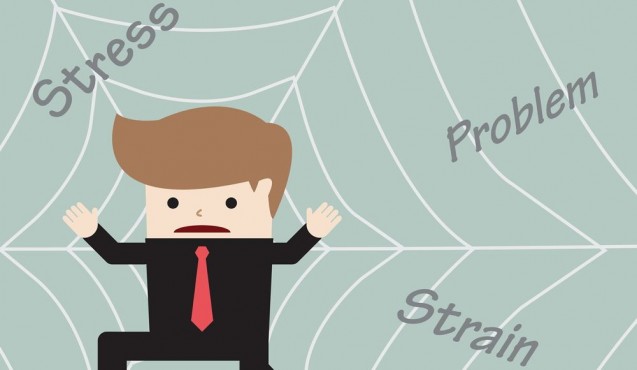Starting a New Job? Don’t Take Those Old Bad Habits With You

One of the most common constellations of bad habits occurs when we get too busy for our own good and the combination of shrinking resources and increasing responsibilities pushes us to the brink. When that happens, we inadvertently slip into self-defeating habits that drain our already precious time, energy, resources, and focus even more.
The problem with this pattern over time is that, when demands outpace capacity, you end up negotiating with yourself about which fire of the day you will put out while the others are painfully neglected. I call this set of imperfect choices “the manager’s dilemma,” because it is truly a no-win situation without an obvious solution.
If you manage people, priorities, and projects, then the chances are good that you have encountered the dilemma at some point; you may even be struggling with its consequences right now.
Whether you want a clean slate in your next job, or you just need to turn over a new leaf in your current role, you can’t let the dilemma bog you down.
Are You in the Midst of the Manager’s Dilemma?
To know whether or not you are stuck in the dilemma’s grip, listen to the way you talk about your own work. The emergence of paradoxical statements like the following is the first sign that the manager’s dilemma is settling into your atmosphere:
- “I can’t afford to relax because things are too busy right now.”
- “I’m drained, but I have to set an example of perseverance for the team.”
- “With so many deadlines and demands, some priorities will have to be sacrificed.”
- “It’s too crazy now; I’ll focus better once things settle down.”
From the outside looking in, you can see how backward statements like these actually are. If a friend said something like this to you, it would be easy to point out the flaw in their logic and show
When we are stuck in our own dilemmas, we somehow start believing that this is how work has to be.Over time, the cumulative effect of this way of thinking and working leaves us feeling like there is truly no way out. What was easy is now difficult. What was enjoyable is now unsatisfying. What was just an inconvenient headache is now a crisis. What used to give us a sense of purpose now seems unimportant. This is the manager’s dilemma.
How the Manager’s Dilemma Forces Us to Make Unfair Tradeoffs
When we are pinned down by these beliefs, we struggle to act in ways that align with our aspirations, values, and goals. We are pushed and pulled by the very irreconcilable choices that are at the heart of what it means to work, manage, and lead well.
- Which goal rises above all your other priorities?
- Which “fire of the day” gets extinguished while others are selectively ignored simply because there are too few resources available to put them all out?
- Which project receives funding while other high-potential opportunities languish?
- Which team member gets your attention as other deserving candidates are inadvertently overlooked?
These are just a few examples of the critical assessments, judgment calls, and decisions that frame the ultimate concern for managers. Within each of these difficult questions, you see the endless set of tradeoffs managers and influential contributors must make when stuck in the dilemma.
Stuck in the Manager’s Dilemma? Learn How to Get Out

The key is to notice the subtle attitudes and behaviors that ultimately lead to self-defeating routines that keep us spinning our wheels. To start overcoming your dilemma, you can take this complimentary assessment to see if the tell-tale signs are present in your working life.

